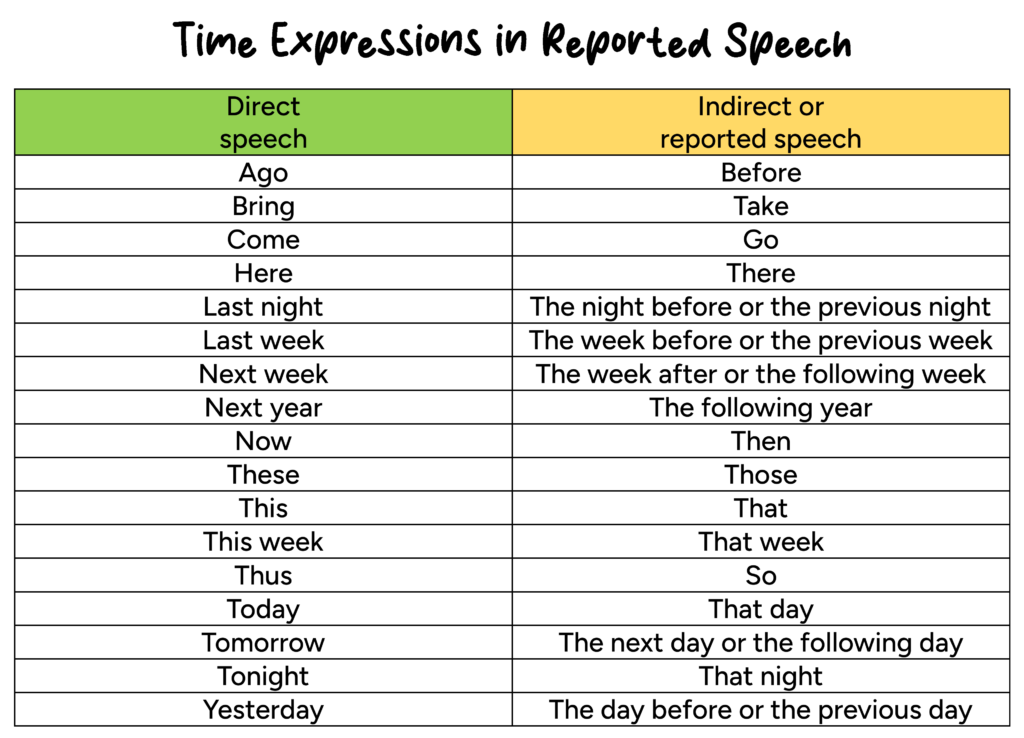In this section you will learn about the direct and indirect speech (reported speech) in English grammar.
What is direct speech?
Direct speech means to report someone’s words exactly as they were spoken and they must be quoted between quotation marks.
How to use it
Look at the following examples:
Mandy said, “I love going out with my friends.”
“You are dehydrated,” Jackson told me.
James said, “I’m going to visit Lydia next week.”
Said and told are the most common reporting verbs used in both direct and indirect speech; also, they can appear before or after the direct speech.
Other reporting verbs: add, answer, ask, claim, cry, demand, explain, instruct, mention, suggest, etc.
What is indirect or reported speech?
Indirect speech or reported speech means to report someone’s words indirectly which involves the backshifting of tenses, changing of pronouns, changing in time, the word ‘that’ is used, and the commas and quotation marks are removed.
Direct speech: Mandy said, “I love going out with my friends.”
Indirect or reported speech: Mandy said that she loved going out with her friends.
Direct speech: “You are dehydrated,” Jackson told me.
Indirect or reported speech: Jackson told me that I was dehydrated.
Direct speech: James said, “I’m going to visit Lydia next week.”
Indirect or reported speech: James said that he was going to visit Lydia the following week.
Tenses change in indirect or reported speech
When you want to use reported speech, a change in the tense occurs. In the following table, you will find the change of tense.

In reported speech, when you change the tense, you also need to change the time and place expressions. The following table will help you:

Read more about English grammar here.